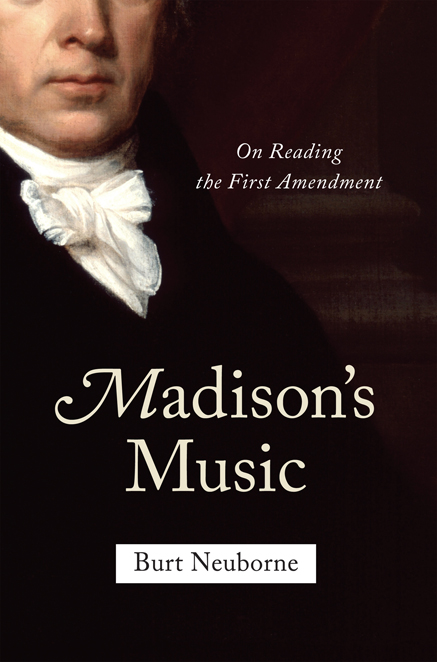
Madison's Music
On Reading the First Amendment
- اطلاعات
- نقد و بررسی
- دیدگاه کاربران
نقد و بررسی

February 16, 2015
Neubourne, a New York University law professor who founded the Brennan Center for Justice, argues that the Supreme Court's misreading of the First Amendment has done lasting harm to the body politic. He severely criticizes the Court, stating that justices have built a "dysfunctional democracy" and have "tolerated or perpetuated virtually every undemocratic practice that currently burdens American democracy." Neubourne places much of the blame on the Court's failure to give meaning to the Amendment's reference to "freedom of speech," criticizing appeals to literalism or "what's sometimes called originalism." Neubourne also passionately dismantles the Supreme Court's view of how the first amendment should operate when there are conflicts between the theoretical right of free speech and the rights of those affected by the speech. In his view, the Court has gone too far in protecting the speech at the expense of those that must endure the speech. Neubourne's reading of the Amendment is radically different than traditionalists in many respects; perhaps most inventive is his argument that the Amendment's provisions on free association provide a Constitutional justification to undo gerrymandering and a host of other limitations on the right to vote. All in all, a provocative and well-conceived book that will resonate with liberal America and in some instances with conservative Americans as well.

December 1, 2014
Constitutional expert Neuborne (Civil Liberties/New York Univ. Law School; Building a Better Democracy: Reflections on Money, Politics and Free Speech, 1999, etc.) offers a cogent critique of America's "highly dysfunctional political system," abetted by Supreme Court interpretations of the Bill of Rights, especially the First Amendment.Likening James Madison's 45-word text to a poem, the author examines the words, phrases, cadence and order to argue that it presents "a coherent narrative of democracy instead of a series of unconnected commands." Madison's sequence of six points begins with individual conscience (ensuring no prohibition to "free exercise" of religion), follows with "three ascending levels of individual interaction with the community-free expression of an idea by an individual, mass dissemination of the idea by a free press, and collective action in support of the idea"-and, significantly, affords the right "to petition the Government for a redress of grievances." Neuborne asserts that the Supreme Court, taking phrases out of context, has promoted a division among the electorate into "three tiers of citizens...supercitizens, ordinary citizens, and spectator citizens," empowering the enormously wealthy to set the political agenda, choose candidates and bankroll campaigns. Gerrymandering, a vice of both parties, has made genuinely contested elections impossible; third parties are quashed; arcane voter registration requirements suppress voting. The author excoriates the court for its Citizens United decision, which gives corporations the same rights as people: "A robot has no soul. Neither does a for-profit business corporation. Vesting either with constitutional rights premised on human dignity is legal fiction run amok." Neuborne suggests public funding of elections and urges revisions of voter registration procedures to boost turnout from the lowest in the democratic world. Most importantly, he calls for judges to understand the First Amendment's intent to ensure democracy for all rather than only the powerful few. An urgent message that deserves a wide readership.
COPYRIGHT(2014) Kirkus Reviews, ALL RIGHTS RESERVED.




دیدگاه کاربران